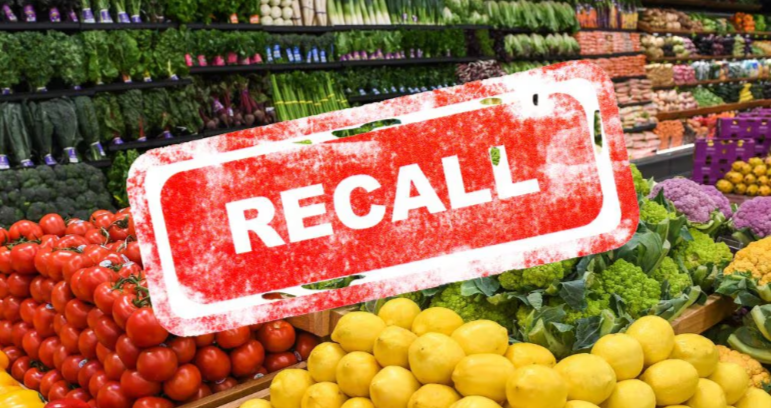In recent months, the US has seen a series of food contamination incidents, including outbreaks of E. coli and Listeria. The Wyoming Star reached out to Brian Schaneberg, Executive Director of the Institute for Food Safety and Health and Industry Professor in Food Science and Nutrition at the Illinois Institute of Technology, to discuss the current state of food safety in the US and potential improvements needed in policy and enforcement.

Wyoming Star: How well does the current US food safety policy address the risks of foodborne pathogens? Are there significant gaps that need to be addressed?
Brian Schaneberg:
The food produced in the US is some of the safest in the world.
In January 2011, President Obama signed into law one of the biggest updates to the US food safety system. For the first time, the manufacturer of the food under US FDA regulation must implement comprehensive, science-based preventive controls to prevent foodborne illness. The US FDA is also given greater inspection and compliance authority, including the ability to require a mandatory recall by companies. This also includes increased authority over imported products. As the law was implemented over the last decade, the increased inspections and the principle of prevention are helping to further improve the safety of the food we eat. Although foodborne illness will still happen, the preventive nature of the regulation is designed to catch issues before someone may consume the product and become ill. The Listeria recall by TreeHouse Foods of frozen waffle products is an example where the information indicated there may be a risk with the product, thus it was voluntarily recalled even though no illness had been linked to the product with the idea of prevention. Overall, the law does not guarantee there will not be future foodborne illness, but its intent over time is to reduce the number of cases of illness due to food.
Wyoming Star: Given the recent outbreaks, do you foresee any imminent changes to food safety regulations, or are there ongoing initiatives to strengthen current policies?
Brian Schaneberg: At this time, there are no federal legislative initiatives being proposed. Each incident will provide further learnings leading to corrective actions and prevention strategies that can then be implemented to further prevent and reduce the chances of a foodborne illness.
Wyoming Star: What are the biggest challenges regulators face in enforcing existing food safety standards across the supply chain?
Brian Schaneberg: The greatest challenge is due to the scale and global nature of today’s supply chain, as ingredients in a product could be produced by vendors multiple steps away from the manufacture of the finished product. Further challenges also include the desire by consumers to have new novel ingredients such as alternate protein options. One example is the growth in nut butters. When a facility is now manufacturing peanuts, almonds, cashews, etc., there is now greater opportunity for allergen cross-contamination and greater difficulties ensuring the manufacturing lines are cleaned and sanitized adequately.

Wyoming Star: The Food Safety Modernization Act (FSMA) emphasizes prevention. Are there any areas where its implementation could be improved to better prevent outbreaks?
Brian Schaneberg: Prevention is the core principle of FSMA.
It is impossible to completely stop outbreaks, but by using a prevention strategy that works to reduce risk, it would then reduce the number of outbreaks over time.
Better testing and faster detection will also help quickly identify an issue with the goal of stopping the product from reaching the consumer.
Wyoming Star: With the globalization of the food supply chain, how can US policies better address food safety risks associated with imported foods?
Brian Schaneberg: Regardless of the origin of the food or its ingredients, it must comply with US regulations to be sold in the US. For companies outside the US, they must comply with the Foreign Supplier Verification Program. A supply-based management system implemented by many companies is designed to review and approve foods and ingredients. The Food Traceability Rule, the last of the FSMA rules, goes into effect in January 2025, which provides further requirements on higher-risk foods and ingredients.
Wyoming Star: How can small-scale producers and processors, often limited in resources, comply with food safety standards?
Brian Schaneberg: Training is one crucial component in food safety that can help small-scale producers and processors. The Food Safety Preventive Controls Alliance, recognized by the US FDA, is one way to learn and develop further knowledge in food safety practices and preventive controls.
Wyoming Star: How effective are current traceability systems in identifying sources of contamination quickly? What innovations could improve this process?

Brian Schaneberg: It is not as much the system as it is the complex global supply chain that is a challenge. Many ingredients can be two or more suppliers away from the buyer of the ingredient producing the food. Improvements are needed by the brokers and suppliers ensuring the ingredients they are buying are safe before selling to their customers.
They need to do more than simply asking for a document stating compliance; they need to implement testing systems as well.
Wyoming Star: What role does public education play in reducing foodborne illnesses? Are there gaps in how consumers are informed about food recalls or proper food handling practices?
Brian Schaneberg: The government and university extension programs all provide information on proper handling of food. Basic internet searches will lead a consumer to these educational resources, and all recalls can be found on various government websites, USDA, US FDA, CDC, etc.
Wyoming Star: How effective are current recall systems in removing contaminated products from the market? How can they be improved?
Brian Schaneberg: With the implementation of FSMA, this was the first time the US FDA had been given the authority to require recalls. Today, the recall systems are adequate, and the agencies quickly provide information publicly once known, even for voluntary recalls, as it was determined there is the potential risk of illness or injury.
Wyoming Star: What areas of food safety research need more attention to prevent future outbreaks?

Brian Schaneberg: Fresh produce will continue to remain one of the highest-risk categories of foods. Further research into agricultural practices, washing techniques, pathogen inactivation technology, and rapid detection methods would be some areas for continued research.
Wyoming Star: Do you see emerging technologies, such as AI and advanced microbial testing, reshaping food safety practices in the near future?
Brian Schaneberg: There is definitely the potential for AI to be a helpful tool in outbreak prevention, but much work is still needed as the information generated by AI is only as good as the data set used in the AI system. It would then need a high level of validation to prove its usefulness.
Rapid or instant microbial testing technology that is cost-effective would greatly benefit the industry and consumers.
Traditional methods take days for confirmation, but in the case of many fresh products, the item is consumed before the test can be completed.









